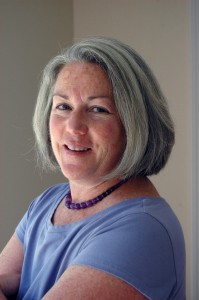Martha Hayward is the Lead for Public and Patient Engagement at the Conversation Project, a Boston-based non-profit “dedicated to helping people talk about their end-of-life wishes.” The Conversation Project offers conversation-starters, information resources, and a venue for users around the country to share their stories. Ms. Hayward sat down with SevenPonds to tell us about her organization.
Antal: Let’s start by telling our readers a little bit about the Conversation Project. What does your organization do? How did you begin?
Martha: The idea behind the Conversation Project initiated when this relatively informal group of people, including our founder, Ellen Goodman, became aware of how ill-prepared they were when they became faced with a death. In Ellen’s case, the death of her mother. How many decisions, questions she found herself faced with that she did not know how to answer. Whether or not her mother wanted antibiotics, how far to take the palliative care, the hospice care, question after question. She wondered, why don’t I know what my mother wanted? She began to meet with people in the Boston area, surgeons, clergy, palliative and hospice care workers, bringing different perspectives into the room and asking the question: “Why aren’t we having these discussions, and what can we do to help people have these discussions?” We found that there was actually tremendous work being done in this field already, addressing the death and dying experience throughout the country, but the general public was not aware of it. We’re talking a major social change waiting to take place, akin to the birth movement. Such as in my case: I’m 55 years old. My mother was fully anesthetized when she had me, and did not hold me until two days after I was born. This isn’t the norm anymore; people know now, because they’ve talked about it, that mothers don’t have to take drugs during the birth. People submit to medical advice without recognizing that they have choice, that they have the power to make sure their choices can and will be honored. Our goal is very simple and very clear: bring the end-of-life conversation to the kitchen table, either with or without prompting the input of a doctor.
 Antal: We at SevenPonds like to see our work as a part of its place nationally. How do you see the Conversation Project in the context of the wider death experience, our relation to it?
Antal: We at SevenPonds like to see our work as a part of its place nationally. How do you see the Conversation Project in the context of the wider death experience, our relation to it?
Martha: Well, let’s call it the death industry, just to call it something. Take SevenPonds for example, or The Conversation Project. These are just a few options cropping up that will elevate awareness of all of these different aspects of the death and dying industry. The Conversation Project is being facilitated by regular people like you and me, who have set aside a good part of their lives and invested their time, talent and treasure in this movement. We’re in a position where we’re in competition with no one, because our purpose is to support and engage everyone.
Antal: Are there any stories that you have heard that really stand out?
Martha: Dealing so often and so fully with this project, day in and day out, I actually become a bit desensitized to the different stories I hear. I realize this. So about a week ago I sat down and really read through the stories our readership has shared, and I was overwhelmed how these experiences represented thousands of people out there, how honestly we could all learn from each other and see the difference between having and not having the conversation. For instance, there was one story about a really good death, a man in his 30s dying of cancer, because his family came to really understand what he wanted. We know that morphine can be and commonly is used in cancer treatment. But his one wish was never to give up, to always hold onto his chances and be there until the end, and so, when the doctors told him they were putting him on morphine, he reacted very strongly. He said, “You lied to me!” He demonstrated that he was alert even then, and he wanted to stay that way until the very end. For me, this story really shows the heart of what it means to respect a person’s wishes.
Antal: When will your site be launching the stories that your readership has shared?
Martha: This is imminent. Our desire was, we set the launch date in partnership with ABC News, and we have people sharing stories. Because this is what is really at the crux of any meaningful change: families, or you and I, connecting, sharing. Because we will all die some day; the people we know will die and we will have to deal with this, that’s just a fact. It’s important that we talk about this. And it’s the human stories that produce social change, no matter what the story. The stories of bad deaths will show us the need, and good deaths will encourage us to move ahead.
Antal: Thank you so much for speaking with us. It is a great site. Please keep us updated on your site’s progress.
Martha: We will. And you’re welcome.
For more on the Conversation Project, Martha Hayward, and Conversation Project CEO Ellen Goodman spoke with the Institute for Healthcare Improvement on their weekly radio program. Listen to the podcast here.
- Discover one woman’s experience and growth following the death of her parents
- Read more SevenPonds coverage of Ellen Goodman’s The Conversation Project
- SevenPonds reviews Elizabeth Kübler-Ross’ landmark text on grief, On Death and Dying

 What is the Conversation Project? – An Interview with Martha Hayward
What is the Conversation Project? – An Interview with Martha Hayward



 First the Wealth Gap, Now the U.S. Has a Growing Health Gap
First the Wealth Gap, Now the U.S. Has a Growing Health Gap

 Our Annual Seven Holiday Gifts for Someone Who Is Grieving, 2024 Edition
Our Annual Seven Holiday Gifts for Someone Who Is Grieving, 2024 Edition














